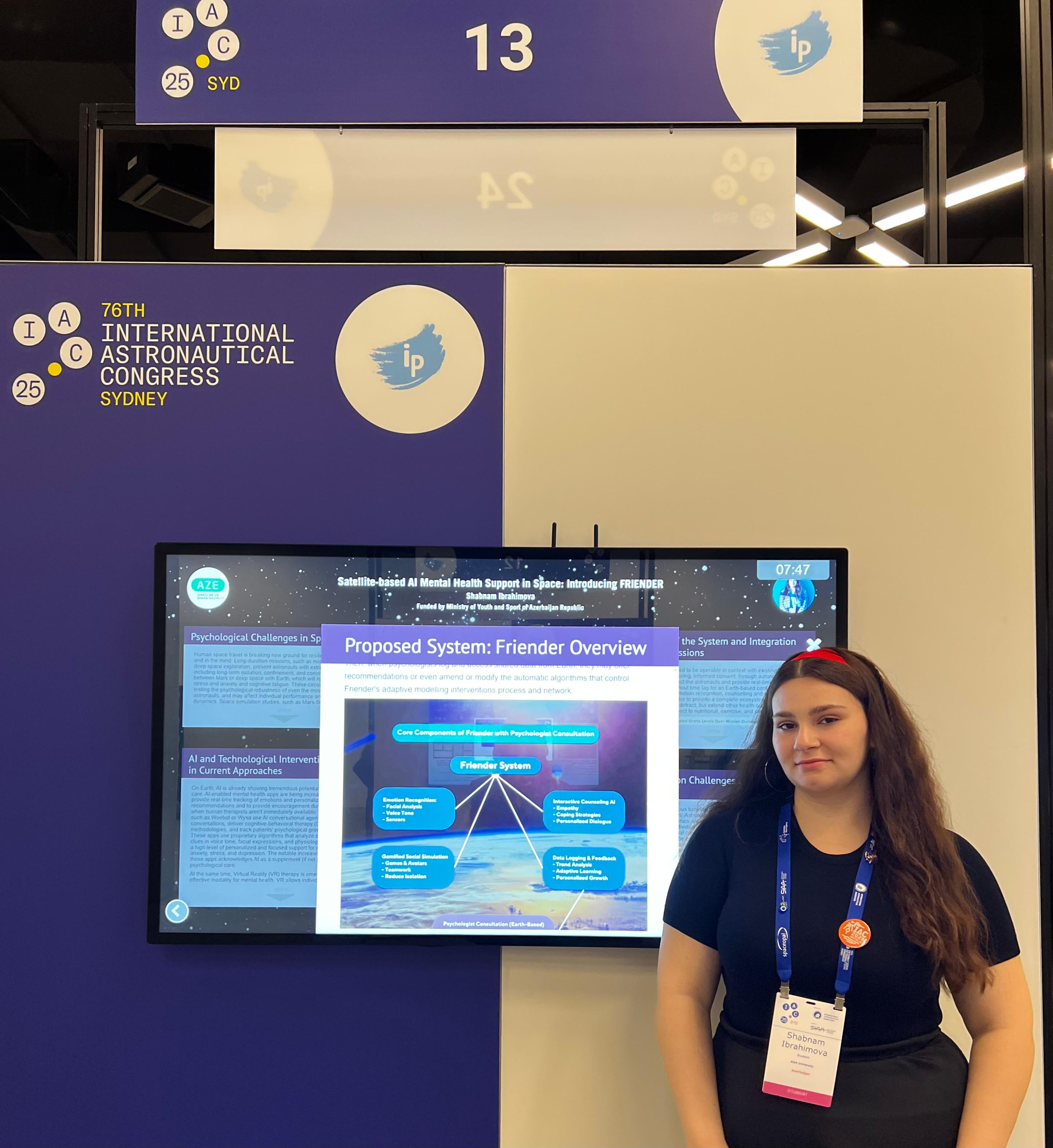From Azerbaijan to Washington, D.C., and on to Sydney, Australia, Shabnam Ibrahimova is making her mark on global scientific conversations as a dual master’s student in the partnership program between GW Engineering and ADA University. She represented both institutions at this year’s International Astronautical Congress (IAC), where she gathered with the world’s space community to discuss advancements in space research and innovation and forge connections.
“It was an incredible opportunity to contribute to global discussions on human spaceflight and technology innovation, exchange ideas with experts, and represent ADA and GW among international researchers and professionals,” said Ibrahimova.
Ibrahimova was first introduced to the power of international collaboration in the space community when she attended IAC 2024 in Milan; therefore, attending again this year was a natural next step. Although an independent effort, she notes that her experience at GW Engineering so far has strengthened her curiosity, research mindset, and passion for exploration, and inspired her to continue contributing to these conversations.
As a dual master’s student, Ibrahimova is pursuing an M.S. in Computer Engineering from GW and an M.S. in High Performance Computing from ADA, with a focus on networking systems and data-driven technologies. IAC 2025 demonstrated for her how these concepts are applied in real missions and how they connect with technology, psychology, and biology to ensure astronauts’ well-being.
The Congress’s theme was the connection between space innovation and sustainability, highlighting the need for responsible approaches to exploration that preserve space for future generations while enabling current endeavors. Ibrahimova presented two papers reflecting this theme that explored how to utilize technology to make space missions both safer for humans and more sustainable.
In her first paper, Ibrahimova examined how artificial intelligence (AI) can support the well-being of astronauts by addressing the emotional challenges they face on long missions. She developed “Friender,” an AI-powered companion designed to help provide companionship. Her second paper focuses more on physical well-being, studying the effect of space conditions on immune responses and how this could be applied to improve healthcare on Earth as well.
“Together, these works reflect my belief that space exploration is human-centered. It’s about protecting the minds and bodies of those who take humanity beyond our planet, which is a realization that started at IAC 2024 in Milan and grew even stronger through IAC 2025 in Sydney,” said Ibrahimova.
The interactive format of the presentations offered a unique opportunity for audience members interested in the same topics to speak directly with Ibrahimova about her work. “One unforgettable moment was when several industry professionals expressed their interest in collaborating to bring 'Friender' to life, even discussing the possibilities of extending its communication network beyond Earth,” she said.
Exploring the exhibition hall provided Ibrahimova with additional networking opportunities with companies at the forefront of space innovation. She shared that the support of her instructors, particularly Mohammed Hammas Saeed, a postdoctoral associate at GW, made a significant difference in her confidence when speaking with these industry leaders and actively encouraged her attendance.
Being early in her master’s program, this experience motivates Ibrahimova to continue her critical, human-centered research and share it on a global stage. Her early accomplishments stand as a powerful testament to the preparation and ambition fostered by the GW Engineering and ADA University Partnership Program.


